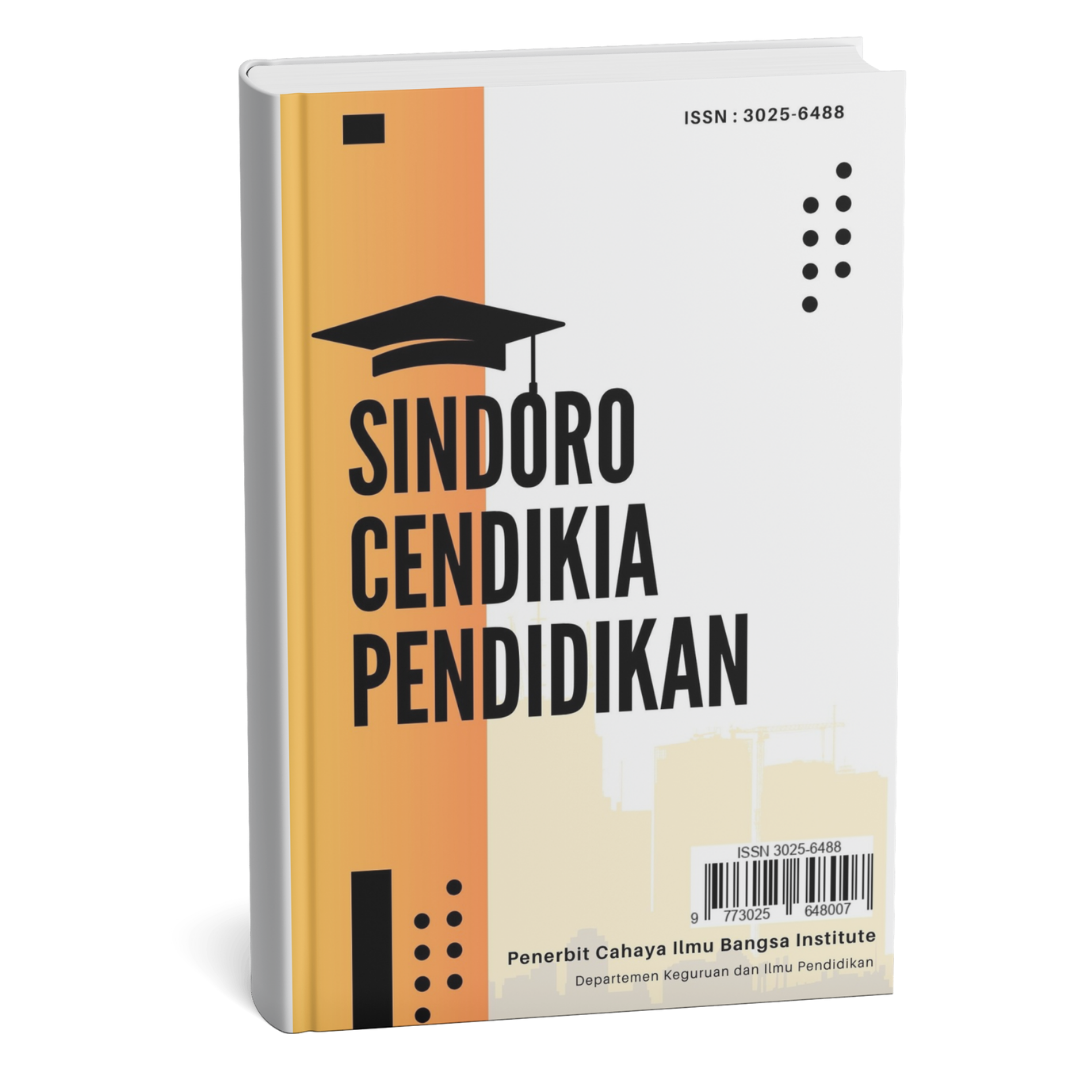STUDI KUANTITATIF PENGARUH KEPERCAYAAN DIRI DAN IDE-IDE KREATIF SISWADALAM MENGUASAI KONSEP MATEMATIKA
Main Article Content
Abstract
This research explores the influence of students' self-confidence and creative thinking on their ability to understand and master mathematical concepts. Employing a quantitative correlational method, the study involved 30 junior high school students who completed a self-confidence scale and a mathematics test focused on least common multiple and greatest common divisor topics. The findings demonstrate that both self-confidence and creativity significantly contribute—individually and collectively—to students’ mathematical achievement. The results emphasize the need for mathematics education to cultivate not only cognitive competence but also affective factors, such as confidence and creative problem-solving skills, to support deeper conceptual mastery and improved academic outcomes.
Penelitian ini bertujuan untuk menganalisis sejauh mana kepercayaan diri dan kemampuan berpikir kreatif siswa memengaruhi penguasaan konsep matematika. Melalui pendekatan kuantitatif korelasional, data dikumpulkan dari 30 siswa kelas IX menggunakan angket kepercayaan diri serta tes tertulis terkait materi KPK dan FPB. Hasil analisis menunjukkan bahwa kedua variabel bebas — kepercayaan diri dan kreativitas — berkontribusi secara simultan dan signifikan terhadap prestasi belajar matematika. Temuan ini menegaskan pentingnya mengembangkan aspek psikologis dan kognitif siswa dalam proses pembelajaran matematika agar tercapai pemahaman konsep yang lebih optimal dan hasil akademik yang lebih baik.
Article Details
Section
This work is licensed under a Creative Commons Attribution-ShareAlike 4.0 International License.
How to Cite
References
Abu Omar, D., et al. (2024). Positive Psychology Interventions to Increase Self-Esteem and Confidence among Students with Dyslexia. Youth, 4(2), 835–853. https://www.mdpi.com/2673-995X/4/2/55
Antika, H. N., & Rahaju, E. B. (2024). Tingkat Kemampuan Berpikir Kreatif Siswa SMP dalam Menyelesaikan Mathematical Modelling Problem Ditinjau dari Self Efficacy. MATHEdunesa, 13(2), 396–419.
Chaira, R., & Taufik, T. (2025). The Relationship Between Self-Confidence and Peer Social Acceptance. TOFEDU Journal, 4(1), 315–324. https://journal.tofedu.or.id/index.php/journal/article/view/451
Febriana, L., & Wahyudin, D. (2024). Self-Confidence in Learning Mathematics: A Study on Junior High School Students. JPMI, 12(1), 44–55.
Fitria, K. N., Dwijanto, D., & Dewi, N. R. (2023). Kemampuan Berpikir Kreatif Matematis Ditinjau dari Self-Esteem pada Model PBL dengan Pendekatan STEAM. Jambura Journal of Mathematics Education, 4(2).
Gilar-Corbi, R., et al. (2024). Emotional Factors and Self-Efficacy in the Psychological Well-Being of Trainee Teachers. Frontiers in Psychology, 15. https://doi.org/10.3389/fpsyg.2024.1434250
Hendriana, B., & Akbar, R. M. (2023). Efforts to Improve Mathematical Creative Thinking of SMK Students by Using Problem-Based Learning Model Assisted by Quizizz. Prima: Jurnal Pendidikan Matematika.
Herianto, H., Sofroniou, A., Fitrah, M., et al. (2024). Quantifying the Relationship Between Self-Efficacy and Mathematical Creativity: A Meta-Analysis. Education Sciences, 14(11), 1251.
Heliyon. (2024). Analyzing the students’ mathematical creative thinking ability in terms of self-regulated
Koimatul Chasanah. (2025). Mathematical Creative Thinking Ability Viewed from Student Self-Efficacy Through the STEAM Approach to Project-Based Learning. Prosiding SNMMU (ed. 2025).
Noviyanti, N., Saputro, M., & Darma, Y. (2024). Analisis Kemampuan Berpikir Kreatif Matematis Ditinjau dari Self-Efficacy dalam Materi Lingkaran. Pendas: Jurnal Ilmiah Pendidikan Dasar, 9(4).
Ramadhanta, S. A., Simamora, R. E., & Susanti, D. (2024). Enhancing Mathematical Creative Thinking Ability: Experimentation with RME by Embedding Ice Breaking. EDU-MAT: Jurnal Pendidikan Matematika, 12(1).
Raimondi, M., et al. (2025). Self-Efficacy and Psychological Well-Being among Adolescents: The Role of SES and Cultural Contexts. Children, 12(2), 39. https://www.mdpi.com/2227-9067/12/2/39
Rivera, D., et al. (2023). Instructor Recognition Increases Self-Efficacy and Interest in Physics among Female Students. arXiv preprint arXiv:2303.07239. https://arxiv.org/abs/2303.07239
Rosales-Márquez, J. L., et al. (2024). Digital Competence and Self-Efficacy in Secondary Education. Frontiers in Education, 9. https://doi.org/10.3389/feduc.2024.1515033
Solfitri, T., Siregar, H. M., Kartini, K., & Permata, A. (2024). Facilitating Mathematical Creative Thinking Ability: Analysis of Validation, Practicality, and Effectiveness of Learning Modules. Jurnal Pendidikan Progresif, 14(1).
Takdir, A. M., et al. (2025). Transforming Negative Thoughts into Self-Confidence: The Impact of Cognitive Restructuring on Adolescents. Journal of Psychological Perspective, 7(1), 19–28.
Tyas, C. A., & Setiawan, A. (2024). The Relationship between Self-Concept and Self-Confidence of Junior High School Students. Quanta, 9(1). https://e-journal.stkipsiliwangi.ac.id/index.php/quanta/article/view/5474
Zhai, Z. (2025). Self-Efficacy’s Influence on College Students’ Academic Performance. Lecture Notes in Education Psychology and Public Media, 92, 59–63.
Zhang, Q., & Johnson, E. (2024). LLM-Guided Self-Reflection Increases Confidence and Performance in Learning. arXiv preprint arXiv:2406.07571. https://arxiv.org/abs/2406.07571

